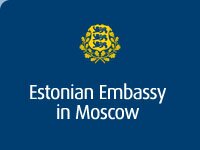Foreign Minister Urmas Paet: International Criminal Court Has Important Role in Helping Victims of Crimes Against Humanity
10.09.2012
No 316-E
Today Foreign Minister Urmas Paet, along with Finnish Foreign Minister Erkki Tuomioja and President of the Assembly of States Parties of the International Criminal Court (ICC) Tiina Intelmann, opened a high-level ICC seminar in Tallinn that is focusing on helping victims and compensating them for the damages caused to them. “During its ten-year history, the International Criminal Court has managed to establish itself as a successful and thriving institution,” Foreign Minister Paet said at the opening of the seminar. On 14 April of this year the court reached its first verdict, with which it declared Thomas Lubanga Dyilo, a warlord of the Democratic Republic of the Congo, guilty of war crimes. “In light of the verdict a broader question arose - how to compensate the victims of these crimes for the damages caused to them,” Paet noted.
Paet stated that it is very complicated to find opportunities to bring people justice when it comes to crimes that affected countless people. “In addition to punishing the criminals, addressing the victims and their needs is a crucial part of ensuring peace and stability,” he stated. “We highly value the work of the Trust Fund for Victims established by the Rome Statute, as it works to help the victims of criminals that are declared guilty by the court,” Paet added.
The foreign minister also emphasised that in matters related to reparations, close communication with the victims and their communities is extremely important . “Reparations must be appropriate and culturally acceptable for the victims,” Paet noted. “We must set the needs of vulnerable groups – including women, children, and the victims of sexual violence – as priorities,” he added.
The high-level ICC seminar “10 Years of the International Criminal Court: A Focus on Victims” will be taking place in Tallinn today and tomorrow, 10-11 September. During the seminar notable figures in the field such as Elisabeth Rehn and Silvana Arbia will discuss how to address victims in the context of the ICC, how to help them through the Trust Fund for Victims, and how to compensate them for their suffering.
Additional information on the ICC seminar: http://www.eihr.ee/icc-seminar-10-11-09-2012/
Background information:
Estonia has been a supporter of the ICC since its inception.
On 12 December 2011 the ICC Assembly of States Parties in New York elected Estonian representative Tiina Intelmann as the president of the assembly. For the next three years Tiina Intelmann will lead the work of the ICC member states as a special representative of the ICC and mediate negotiations related to the court’s functioning.
Genocide, crimes against humanity, and war crimes all fall under the jurisdiction of the ICC. The ICC begins proceedings when domestic courts are not able to or do not wish to put the perpetrators of these crimes on trial. The court may also begin proceedings at the request of the UN Security Council. In accordance with the decision made at the Review Conference of the Rome Statute held last year in Uganda, as of 2017 the court will also be able to prosecute crimes of aggression. The International Criminal Court is based in The Hague. The court’s 18 judges and prosecutors are selected by the member states.
Today 121 countries have joined the Rome Statute that is the basis for the ICC, including all of South America, most of Europe, and almost half of Africa.
For additional information on the ICC seminar:
Aet Kukk
Institute of Human Rights
Tel: +372 53302328
E-mail: aet.kukk@ehir.ee
SPOKESPERSON’S OFFICE
+372 637 7654
www.vm.ee
 
|

